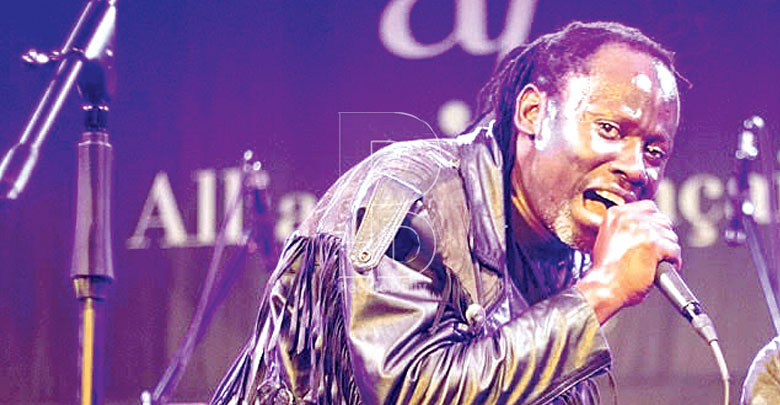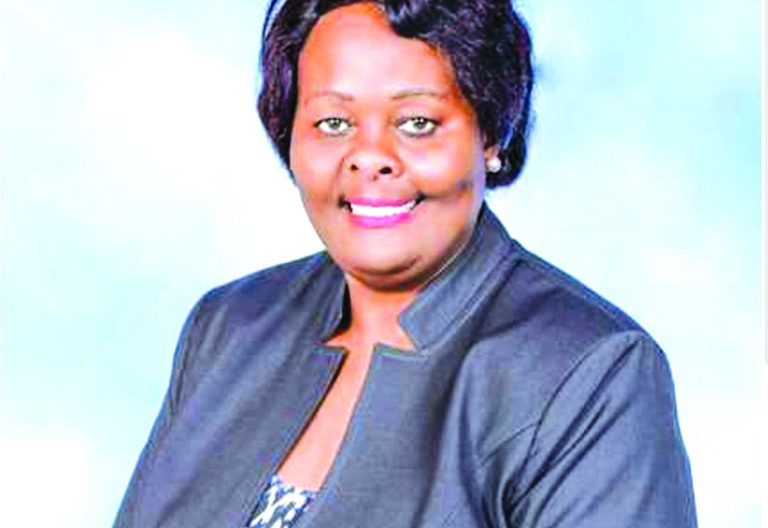Ohanglaman Makadem is one of Kenya’s most authentic contemporary artistes Afro-fusion benga

Where did your other stage moniker Mr Lolova come from?
Mr Lolova is actually myself; the rapper and dancehall-reggae singer. I began music with an acoustic cover music band playing in hotels along the Coast, specifically Mombasa and Diani.
I got this name from one producer and artiste Nabeel Sansool in 1997. After recording my first composition called Anglo Benga, he decided to call the song Lolova and after the first performance during a jam session at Club Florida in Mombasa later that year, the entire audience decided to call me Lolova, so I added the prefix Mr and Mr Lolova was born.
In 2000, I got a promoter and manager called Robi Buluku who owned new Bamburi Water Sports. We did an album called Jambamboo at Nabeel Sound Studio, but the album never saw the light of the day. I fell out with my management and left for Nairobi where I am popularly known as Ohanglaman Makadem.
How did you come up with ‘Nyatiti Jazz’ kind of music?
In August 2018 while on my annual Nyatiti Euro Tours that I started in 2016, I went out with a friend and my booker in Berlin to watch a jazz concert. It was amazing and I got inspired to do the same when I got back home. All I needed to do was to remove the piano and have the nyatiti and that’s how Nyatiti Jazz was born.
Who is your target audience with the Nyatiti Jazz?
I play music to music-loving audiences of all ages and cultures. I’m don’t target a certain group. I don’t believe in that because it’s a pop culture idea and I am not a pop artiste.
How is your experience as a contemporary music artiste in Kenya?
Contemporary music is wide; it can be anything musical. Basically, it is the modern fusions that we do. I love it because I can do what I love. Fuse, collaborate, crossover you name it.
What are the advantages of being a live performer?
As a live performer, one has longevity in the scene compared to one playing with back-up music. I can perform in festivals, concerts, entertainment spots, private functions and still get played on air and stuff. So, my target is unlimited.
Tell us about your Mugithi Kona Kona project. What was it all about?
In 2008 as some places were burning in Kenya due to the post-election violence, creatives were under pressure to do peace songs. My approach was a Luo-Kikuyu cross-cultural song.
I stumbled on this popular mugithi song by Salim Junior and later came to learn the original one was a benga track by JB Maina. After hearing my rendition, Maina demanded his fair share and that was the reason I never released it even after recording it in an international studio in Copenhagen, Denmark, in 2011.
However, I managed to release it in 2018 after reaching a compromise with Maina and it went viral when I posted it on social media earlier this year.
What have you been up to since then?
In 2018, I recorded a Nyatiti house electronic album with a London label called On The Corner Records in London following the success of my single with DJ Behr of South Africa.
The single, Nyako, produced under Santuri Safari became the second best track in the world after being nominated in the Gilles Peterson’s Worldwide Award. We are launching the album this summer in London. My annual Nyatiti Euro Tour is ongoing and it involves a lot of collaborations with deejays from Finland, England, Germany, Sweden, Denmark and Italy.
I’ve just returned from the world famous Indian Ocean Music Market in the French Reunion Island where I was invited to perform with my band.
Why is unity in the Kenyan music industry so elusive?
Kenyan musicians are Kenyans, of course, and in Kenya, unity is not our cup of tea. Vested interests from creatives and corporates, ignorance and a scarcity mentality has resulted in lack of a national musicians union, which could be a great tool in championing common causes.
You have a unique dressing style. Who styles you?
My style is random, but I don’t have a stylist yet; I style myself. But I recently got Ghanaian designer shirts from TextStyle of Aarhus in Denmark and Kenyan design by Kangadelic of Mombasa. They are great designs.
As a veteran in the industry, what’s your advice for young up-and-coming artistes?
Do a good product first and have a good management for your products.
Already gotten yourself a wife or happily never after?
Just not married.












